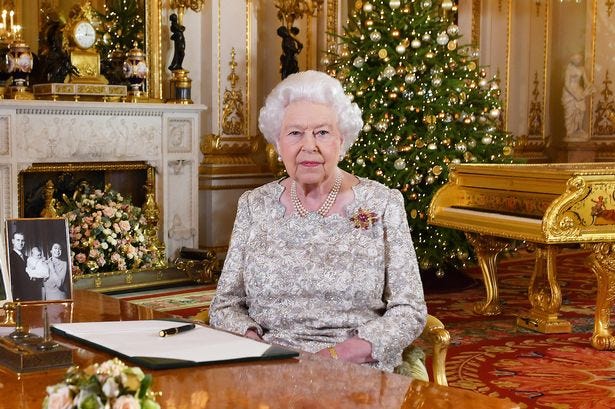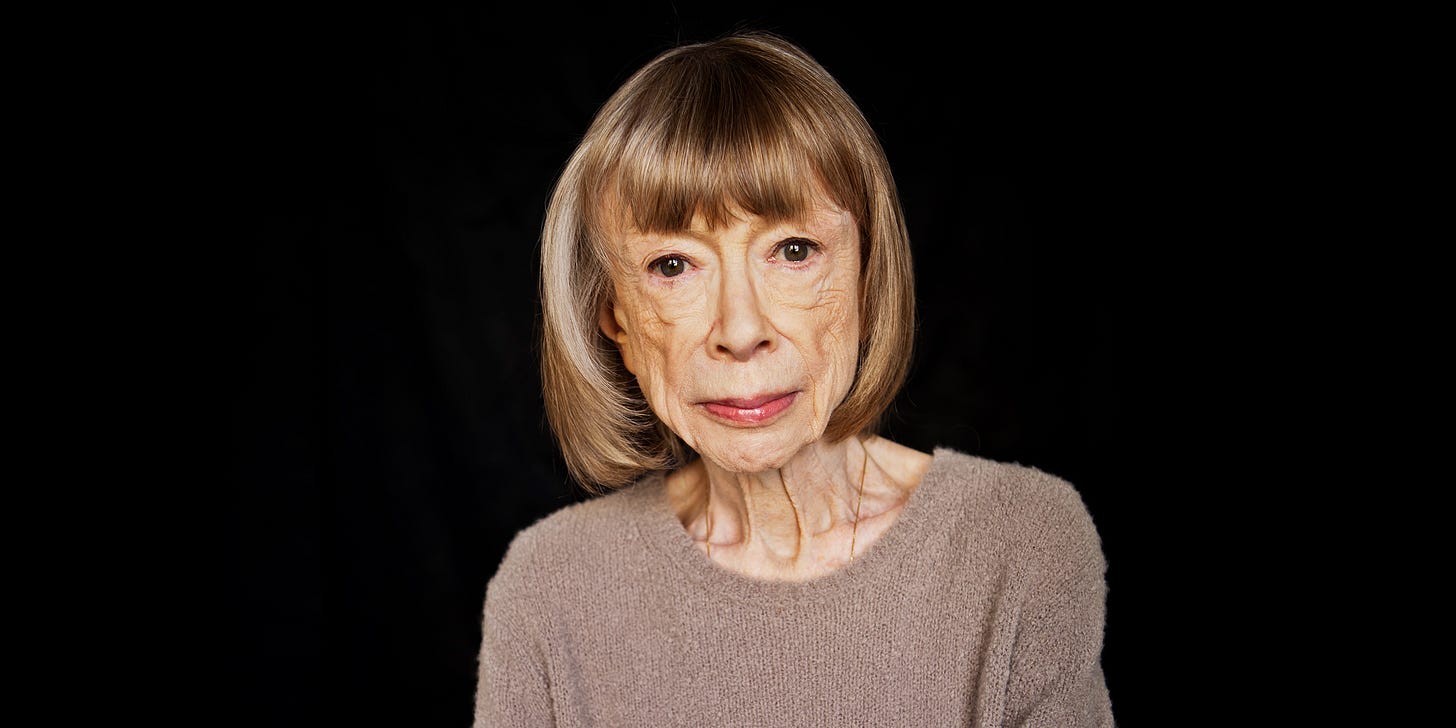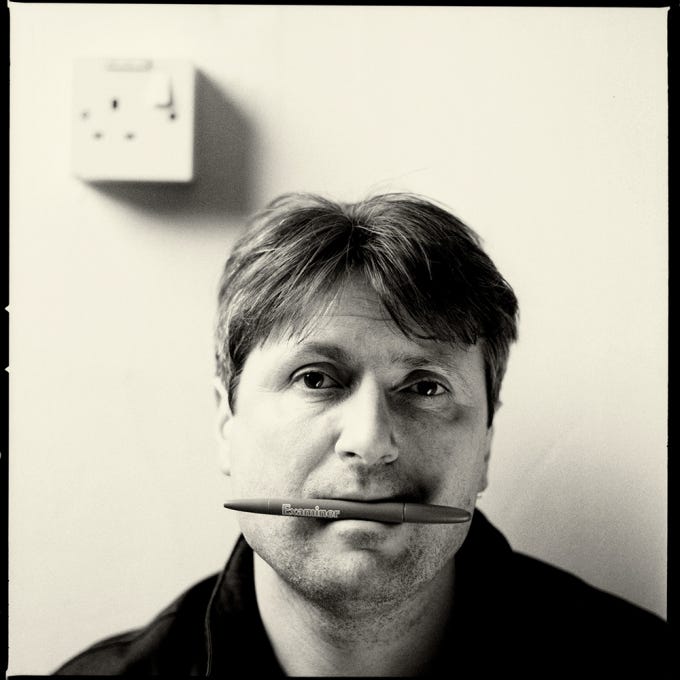First Draft #21: a newsletter on public language
Silent Queen; death euphemisms; poets laureate
The Queen’s Speech
Queen Elizabeth II was the least well-known well-known person of modern times. She was the monarch for so long and spoke to the nation at least once a year, in addition to the formal event of the Queen’s Speech at the opening of Parliament. Yet the secret of her longevity may be that the Queen said so little.
It’s not that she entirely avoided current affairs. At various points in her Christmas addresses the Queen mentioned the death of Nehru, the imprisonment of Nelson Mandela, the assassination of Martin Luther King, the troubles in Northern Ireland and the collapse of the Soviet Union. But we have no real way of knowing what she thought about most of what has happened since 1952.
The rhetorical, deliberate silence is interrupted, in the history of the Christmas address, by two themes and one notable absence. The first is family. This is more than a platitude; it is as close to a theory of monarchy as the Queen would ever come. The idea of a family on the throne, the family of the nation, is a modern novelty so in those addresses in which the Queen talked about her family the script was always metaphorical. The family was us too. It was also sometimes the Commonwealth, which was the second recurrent theme. In her 1956 address, for example, the Queen first referred to the Commonwealth as the family of nations.
The notable absence is that the Queen rarely touches on her own status as a Queen, which is to say as a woman. The most famous speech by a monarch in British history is Elizabeth I’s words at Tilbury to the navy: “I may have the weak and feeble body of a woman but I have the heart and stomach of a King”. It is a speech about the fact that a woman is perfectly capable of commanding the military. In 1966 Queen Elizabeth II made a brief reference to feminism but that is about it. The most famous woman in the world hardly ever mentioned the fact. @PhilipJCollins1
Secretary of State for pedantry
Is Therese Coffey after a job at The Draft? Our new health secretary this week emailed department staff a list of “New secretary of state ways of working preferences”. Avoid policy “jargon”, she insisted, and “be precise”. Amen to that. But other instructions betrayed pedantry too intense even for us. Most controversial: a ban on the Oxford Comma. “Super patronising” fumed the civil servant who leaked the email. True. But, more to the point, it’s misguided. At work, there are only two rules for good writing: clarity and concision. Pernickety prejudices about commas serve no purpose — unless, of course, you’re looking for a speedy way to alienate your colleagues. @AlexDymoke
Talking around death
The Wikipedia page “List of English language euphemisms for death” ranges from reverent (“passed on”, “laid to rest”) to flippant (“croaked”, “bit the dust”). More striking than any individual phrase is the length of the list. There are 67. Death, it seems, is something we’re eager not to talk about directly.
Bereavement charities warn indirect language gets in the way of acceptance. “All models and theories of bereavement,” says counsellor Anne Wadey, stress the importance of “understanding that someone has died” and that the “bereaved person’s life will change as a consequence.” A cloak of euphemism can obscure that fact.
The temptation to soften the stark reality of death is never greater than when talking to children. But it is here that euphemism can do the most harm. With no prior experience of death and little capacity for abstract thought, young children are confused by talk of the dead as “asleep” or “at rest”. Better to heed the advice of writer and doctor Kathryn Mannix. She urges death be talked about with “simplicity, describing the recognisable process by which each of us will finally end our lives.”
But simple language is not only preferable for its proximity to truth. One of the great writers on grief, Joan Didion, recorded her bereavement in spare, unadorned prose: “I could not count the times during the average day when something would come up that I needed to tell him. This impulse did not end with his death. What ended was the possibility of response.” Through dispassionate, near clinical sentences Didion attains a greater kind of emotional intensity.
The announcement tied to the gates of Buckingham Palace last week was admirably direct. No “passed away”. No “resting place”. Simply: “The Queen died peacefully this afternoon.” After a strange day of watching and not knowing, the clarity of those words, if not the news they conveyed, came as a relief. @AlexDymoke
Phrase of the month: “The king is dead, long live the king”
Minutes after the announcement of Queen Elizabeth II’s death, crowds outside Buckingham Palace began singing “God save the King”. They may not have known it, but they were following a law from mediaeval France: le mort saisit le vif (“the dead invests the living”). Recognising succession as a dangerous time for the realm, the law ensures sovereignty passes from a ruler to appointed heir at the instant of their death. Adopted by the Royal Council of the French-speaking Platagenet Henry III, it has defined every succession in England since. The tradition is expressed in the striking phrase, “The king is dead, long live the king” (with its distinctive epanalepsis, meaning “repetition, resumption, taking up again”), versions of which have appeared at several historical moments. In 1946, Robert Cecil, architect of the United Nations, said at the final session of the League of Nations: “The League is dead. Long live the United Nations”. Though monarchs may perish, a well-turned sentence is eternal. @ZachdHardman
Armitage thanks
The commemoration of a death seems to cry out for poetic language. In the House of Commons Keir Starmer was moved to quote the lines Larkin composed for the Silver Jubilee:
In times when nothing stood
But worsened, or grew strange,
There was one constant good:
She did not change.
Though he was flattered to be asked, Larkin turned down the position of Poet Laureate because he feared he had become poetically barren. Perhaps he also feared the pressure to write to order, at moments of national communion. Last week the current holder of the post, Simon Armitage, unveiled Floral Tribute, an acrostic marking the event. It was a touching effort which avoided the histrionics that has marred Poets Laureate in the past: “A blurred new day/ Breaks uncrowned on remote peaks and public parks”.
In truth, the verses of the Poets Laureate has usually been awful. Just about the only famous poem written by a serving Laureate is Tennyson’s Charge of the Light Brigade. Armitage’s poetic hero, Ted Hughes, a good friend and a shooting partner of the new King Charles III, wrote some terrible forelock-tugging guff during his time as Laureate. Hughes is a good example of how a poet can be co-opted into sentimentality by taking an official position, a fate Armitage is cleverly avoiding.
Hughes would have been better if he had simply written about royalty in his own style. As he never actually did, we only have Larkin’s brilliant pastiche to go on. @PhilipJCollins1
Language and beyond
An entertaining Guardian piece on political speechwriting, with a shout out for The Draft.
Critic of the moment Leo Robson talks to author of the moment Joshua Cohen about his Pulitzer Prize winning novel The Netanyahus. “With this book, I wanted to ask: can America survive? Or more generally, can we live in these empires of multiple identities, or are ethno-nation states better at securing us, and protecting us, in every sense of security and protection?”
A guide to Elizabeth II’s most important speeches, from the one she gave as a teenage Princess to BBC Children’s Hour on 13 October 1940 to an address to troops on the eve of the first Gulf War to the Pandemic address delivered two years ago.
A Vox article explains why Democrats can, in defiance of history, be optimistic about this year’s midterms.
Interesting reflections on Elizabeth II’s voice, which evolved dramatically over her seven decade reign.
Continuing the Queen theme, a good song by John Grant.
Time to prepare for a Ukrainian victory, says Anne Applebaum in The Atlantic.
In honour of Roger Federer’s retirement, the iconic piece on him - Roger Federer as Religious Experience - by late US author David Foster Wallace: “Beauty is not the goal of competitive sports, but high-level sports are a prime venue for the expression of human beauty. The relation is roughly that of courage to war.”
An article on New Zealand’s new “plain language” law outlawing nonsensical jargon in government communications.
New from us
Phil’s New Statesman column on the death of Queen Elizabeth.
Phil appeared on The Queen’s English, a Radio 4 documentary led by Martha Kearney on the words and voice of the Queen.
Zach on a new book on Leonard Cohen and Yom Kippur War.
Follow us
Last thing…
At The Draft we’re specialists in writing and rhetoric. We help businesses and public figures make their case more persuasively. If you could use our help, get in touch. And if you enjoy First Draft, forward it on. Thanks for reading.




